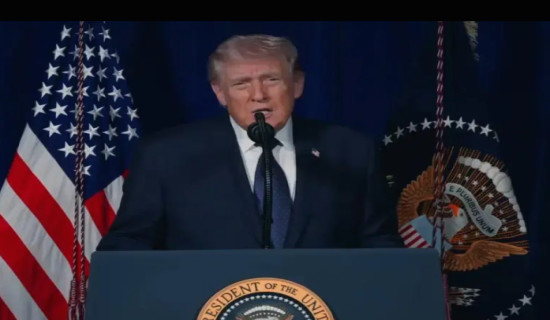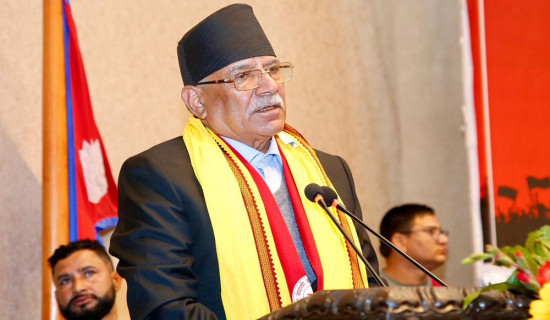- Monday, 2 March 2026
Fukushima nuclear plant begins wastewater release
Okuma, Japan, Aug. 25:The tsunami-wrecked Fukushima Daiichi nuclear power plant 's operator says it began releasing its first batch of treated radioactive water into the Pacific Ocean on Thursday — a controversial step that prompted China to ban seafood from Japan.
In a live video from a control room at the plant, Tokyo Electric Power Company Holdings showed a staff member turn on a seawater pump with a click of a mouse, marking the beginning of the controversial project that is expected to last for decades.
"Seawater Pump A activated," the main operator said, confirming the release was underway. TEPCO later confirmed that the seawater pump was activated at 1:03 p.m. (0403 GMT), three minutes after the final step began.
TEPCO said an additional wastewater release pump was activated 20 minutes after the first. Plant officials said everything was moving smoothly so far.
Japanese fisher groups have opposed the plan for fear it will further damage to the reputation of their seafood. Groups in China and South Korea have also raised concern, making it a political and diplomatic issue.
In response to the release, Chinese customs authorities banned seafood from Japan, customs authorities announced Thursday.
The ban started immediately and will affect all imports of "aquatic products" including seafood, according to the notice. Authorities said they will "dynamically adjust relevant regulatory measures as appropriate to prevent the risks of nuclear-contaminated water discharge to the health and food safety of our country."
Shortly after China's announcement, TEPCO President Tomoaki Kobayakawa said the utility was preparing to compensate Japanese business owners appropriately for damages suffered by export bans from "the foreign government" over the wastewater release. He said China is Japan's key trading partner and that he will do his utmost by providing scientific explanations of the release so that the ban will be dropped as soon as possible.
But the Japanese government and TEPCO say the water must be released to make room for the plant's decommissioning and to prevent accidental leaks. They say the treatment and dilution will make the wastewater safer than international standards and its environmental impact will be negligibly small.
Tony Hooker, director of the Centre for Radiation Research, Education, Innovation at the University of Adelaide, said the water released from the Fukushima plant is safe. "It certainly is well below the World Health Organization drinking water guidelines," he said. "It's safe."
"It's a very political issue of disposing radiation into the sea," he said. "I understand people's concerns and that's because we as scientists have not explained it in a very good way, and we need to do more education." (AP)

















